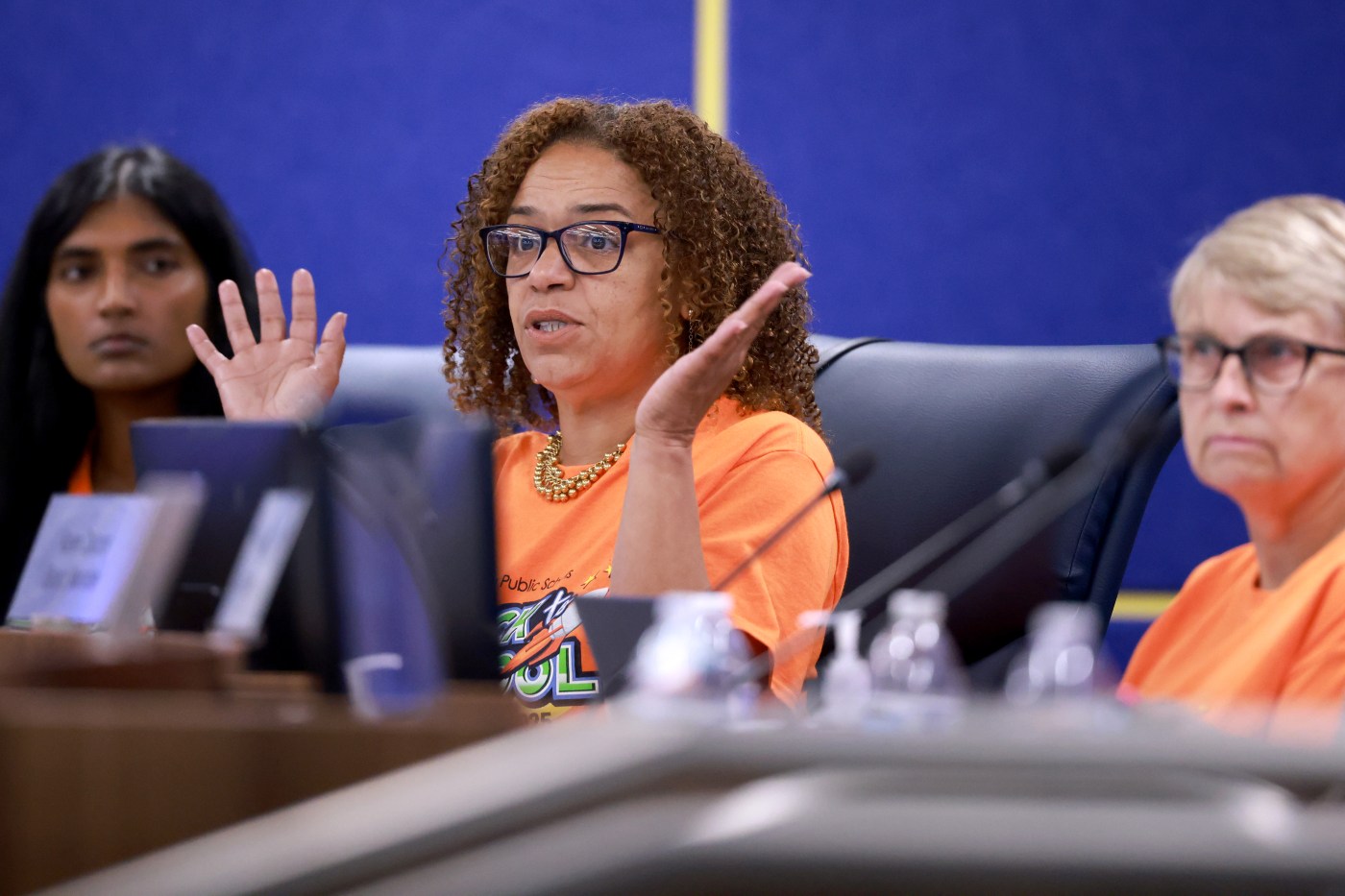The year-long debate over who will pay for the pensions of non-teaching Chicago Public Schools (CPS) employees ended after a tense, hours-long meeting where the Chicago Board of Education voted to finance $175 million toward the payments.
In a unanimous vote, the board approved an intergovernmental agreement with the city, promising to pay an amount not to exceed $175 million for fiscal year 2026. The agreement is effective from Thursday until December 31, 2026.
### Pension Payment Agreement and Funding
The decision comes after months of pressure on CPS to assume the payment from Mayor Brandon Johnson and some city council members. In August, the school board said it would only make the payment if it received additional funding from a tax increment financing (TIF) surplus, beyond the $379 million it was already banking on in its $10.2 billion budget.
The additional funds from TIF districts come from taxing areas around the city and are intended for local development projects. When TIFs expire or declare a surplus—meaning there are excess funds not obligated to specific projects—the money is disbursed across local government bodies. CPS receives roughly 52% of this surplus, while the city receives 23%.
The district’s approved budget stipulated that it would pay for the pensions “contingent on additional revenue,” which must exceed the $379 million CPS counted on as a TIF surplus. However, these funds will not be secured until the city budget is passed, with the payment expected to be made by CPS in two installments once the funding is received.
### Board Members Express Concerns
Multiple board members expressed concerns with the agreement but acknowledged that signing it indicates the district’s commitment to follow through on its August promise to pay the pensions if it received additional funding.
Despite this year’s surplus, questions remain about how the district and City Hall will come to terms with a sustainable plan to fund Chicago Public Schools moving forward.
“We need to have a longer conversation among all of us on the board and also with the city to see what the long-term plan is regarding the reimbursement moving forward after this year,” said board member Yesenia Lopez, District 7B, during the meeting.
### Mayor’s Budget Proposal and TIF Surplus
Mayor Brandon Johnson’s budget proposal recommended a record TIF surplus of over $1 billion this year in its proposed city budget, estimating $552 million of that going to CPS, plus another $20.6 million set aside for its building improvement fund. Johnson’s budget must be approved by City Council by December 31.
CPS’s cut of the TIF surplus is expected to cover the $379 million gap in the district’s budget, $8 million in recently cut federal funding, and at least part of the $175 million pension payment. Yet, the anticipated $552 million TIF windfall leaves CPS $10 million short of covering all its obligations.
It remains unclear who will cover this shortfall since the pension payment is contingent upon the district using additional TIF dollars beyond the $379 million to cover the budget gap.
“If CPS doesn’t make the payment, or it doesn’t make the full payment, the city is left with whatever portion is remaining as gap for this fiscal year… and it will have to find some other way to fill that,” Civic Federation Policy & Research Associate Danny Vesecky told the Tribune.
### Historical Context and Legal Responsibilities
The pension payment has been a point of contention for over a year and played a part in the firing without cause of former district CEO Pedro Martinez. Although the city is legally responsible for the pensions, it has recently pushed CPS to take over the payments.
In August, the majority of aldermen signed a letter committing to a substantial surplus to help CPS. But after the record-breaking sweep was proposed last week, both allies and opponents of Mayor Johnson expressed pushback. The funds are intended to spur redevelopment across the city and would affect 68 of Chicago’s 108 TIF districts, according to estimates from aldermen.
Some have voiced concerns that using TIF funds this way could delay much-needed improvements in neighborhoods, particularly on the South and West Sides of the city.
“Generally, TIF as a revenue source isn’t intended to be used for general operating purposes,” said Annie McGowan, research and policy director at the Civic Federation.
Elected officials have increasingly relied on TIF money to solve Chicago’s budget woes, but it’s considered a temporary solution for structural deficits because it depends on one-time funds.
In 2014, the city declared a TIF surplus of just $65 million. By 2025, the total surplus topped $570 million. CPS received $379 million of that, which accounted for 4% of its budget.
### Uncertainty Surrounding EPIC Academy
Tensions were also heightened regarding the future of South Shore charter school EPIC Academy, which the board was slated to vote on Thursday but ultimately tabled the decision until its next special meeting on November 4.
EPIC stakeholders have expressed concerns about their future, including where staff and students will relocate after the school closes in 2026.
The original vote aimed to enact the closure of the school and provide $1.4 million to help wind down operations. However, concerns grew after board member Aaron “Jitu” Brown, District 5A, motioned to amend the agenda item’s language. His amendment included plans to keep the school community together and to create a wind-down plan involving that community, among other points.
Multiple board members expressed frustration at being “surprised” by the amendment, which ultimately failed to pass.
“This feels like a gotcha. It feels like another us versus them. We’re not unifying as a whole board,” said Ellen Rosenfeld, District 4B. “Why not share it early? I don’t understand.”
While acknowledging that some members found the amendment last minute, member Michilla Blaise, District 5B, noted that the situation reflects the rapid uncertainty plaguing charter schools.
“As these charter schools seem to be closing, we just have to be ready, and we have to make sure that we’re doing our due diligence, that we’re keeping community informed, that we are talking with our labor partners… and we might have to do it a little more quickly than we have in the past,” Blaise said.
—
*Chicago Tribune’s A. D. Quig contributed to this report.*
https://www.chicagotribune.com/2025/10/30/cps-board-pension-payment-charter-schools/

